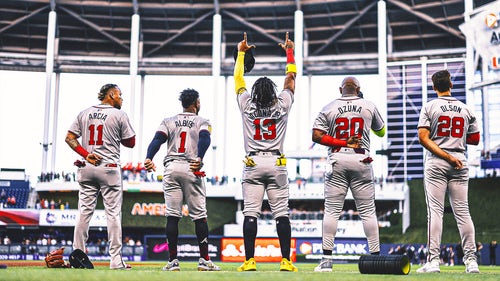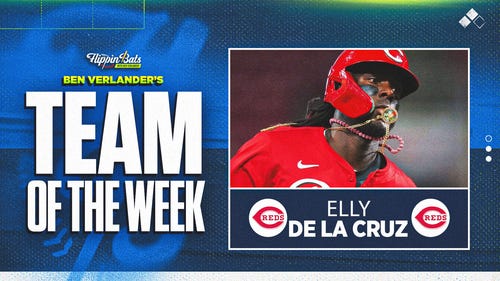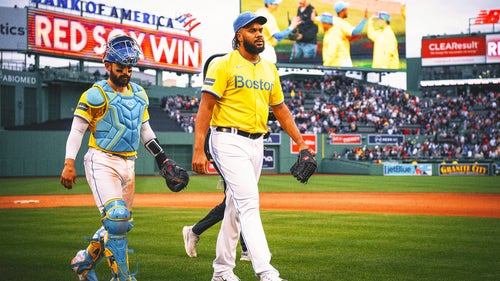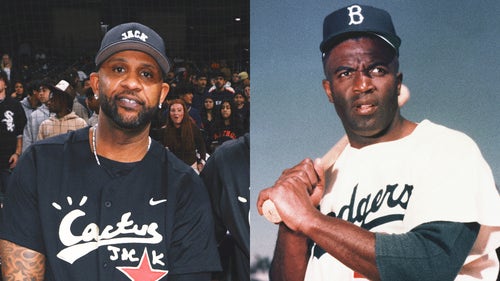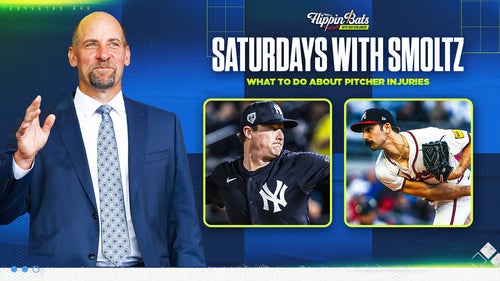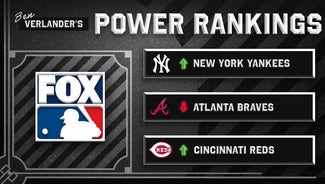
Astros GM defends deadline deals
The Miami Marlins aren’t the only team alarming the industry with their shift in direction.
The Houston Astros, who are awful now, will be even worse next season, their first in the powerful AL West.
They’re trading veterans, including cash in deals and still getting mediocre prospects in return.
“They’re going way overboard,” one rival executive said Wednesday. “They’re getting rid of guys and not even saving that much money. And I don’t see much value in the players they’re getting back.
“You’ve got to play every night. You can’t go out there and say it doesn’t matter if you lose 120 games. Yes, it does.”
OK, but what the heck were the Astros supposed to do?
They would merit genuine ridicule if they had kept first baseman Carlos Lee, left-handers Wandy Rodriguez and J.A. Happ and relievers Brandon Lyon, David Carpenter and Brett Myers.
Were their trades great? No. But look at the players they traded. Look at their contracts. And tell me: How much better could the Astros have done?
“Criticizing them is BS,” another rival exec said. “All the players they moved, everyone knew they were available. Do people think they took the worst offers?”
The Astros made four trades, moving six players and about $21 million in exchange for closer Francisco Cordero, outfielder Ben Francisco and 12 prospects, few of whom are likely to make a major league impact.
Yet, their deals were not exactly acts of impulse.
Jeff Luhnow, the Astros’ first-year general manager, operated systematically, ranking opposing prospects, prioritizing left-handed pitchers and up-the-middle position players, completing his trades well before Tuesday’s non-waiver deadline at 4 p.m. ET to avoid time pressure.
Believe me, it wasn’t as if he blew up a contender.
On May 25, the Astros defeated the reigning National League Cy Young winner, Los Angeles Dodgers left-hander Clayton Kershaw, to improve to 22-23 and move three games back in the NL Central.
Since them, they’re 12-42, a collapse that has them on target for their second straight No. 1 pick in the amateur draft, with a third straight in 2014 entirely possible.
It’s not pretty. But again: What is the alternative?
The Tampa Bay Rays built their perennial low-revenue contender with a series of high draft picks.
The Detroit Tigers stripped down, lost 119 games in 2003 and reached the World Series by '06.
Of course, not every rebuilding project is a success — it has taken 19 straight losing seasons for the Pittsburgh Pirates to seemingly get it right.
But here’s Luhnow:
“If you look at our team the next few years, the goal is to be as competitive as we possibly can, given our situation,” he said.
“Does it makes sense for us to spend $13 million on a starting pitcher (Rodriguez) and $10 million on a closer (Myers) when our payroll will start with a ‘5’, with most of the players being 0 to 3s (in years of service time)?
“On paper you don’t compete like that.”
Luhnow said the Astros’ money will be spent more efficiently on a greater number of players earning between $2 million and $4 million.
He also addressed the criticism that the Astros included too much cash in their trades for too little return.
“In this environment, you’re limited in how much money you can spend on the draft, how much you can spend internationally,” Luhnow said, referring to the rules of the new collective-bargaining agreement.
“There is currency in major league payroll and control of players. And our ownership is willing to invest committed salary to acquiring prospects.”
The previous ownership helped create this mess, awarding a series of inflated contracts. The new ownership hired Luhnow to help undo the damage.
Lots of luck.
The Astros paid nearly all of the approximately $9 million remaining on the final year of Lee’s contract to acquire third baseman Matt Dominguez and Double A left-hander Rob Rasmussen from the Marlins.
Rodriguez, meanwhile, was owed about $4 million for the rest of this season and $13 million next season, plus a $13 million club option for 2014 that would become a player option if he were traded.
Most suitors viewed him as overpaid, so the Astros included enough cash in the trade to reduce Rodriguez’s average salary to $8 million in 2013 and '14.
In exchange, they received outfielder Robbie Grossman and left-handers Colton Cain and Rudy Owens — the Pirates’ preseason Nos. 8, 13 and 16 prospects, according to Baseball America.
“If Wandy was a free agent this offseason, would he get a two-year deal for $26 million? Some teams would say no way. Maybe he would. I don’t know,” Luhnow said.
“So, what is the (trade) market value for a two-year deal for Wandy Rodriguez? Is it $26 million? Or it something less than that? That’s the conversation you have with teams. Basically, you provide the player to them at market value, and negotiate (from) that.
“You allow them to get Wandy for two years at whatever the (reduced) number is. Will they give you a No. 1 or No. 2 prospect to get the player at market rate? Probably not.”
Of course not would be a more accurate way to put it, but Luhnow didn’t waste anyone’s time with absurd demands.
He actually was looking to build minor league depth, in part because the Astros’ system is thin, and in part because the team carries seven affiliates, one more than many clubs do.
“We could stand to get four (lesser) prospects as opposed to one A-plus prospect, gamble a little bit, play the odds on four guys who might have a 25 percent chance of making an impact at the big league level vs. one guy with a 50 percent chance,” Luhnow said.
The Astros’ 12 new prospects received close to $10 million combined in signing bonuses when they were drafted, Luhnow said. Their aggregate value, by the team’s estimation, is more than $20 million now that the players are established professionals, and will grow as some graduate to the majors. Meanwhile, players such as Rodriguez and Lyon were more valuable to other teams than they were to the Astros.
It isn’t pretty. It won’t be pretty.
But there wasn’t much more the Astros could have done.






































































































































